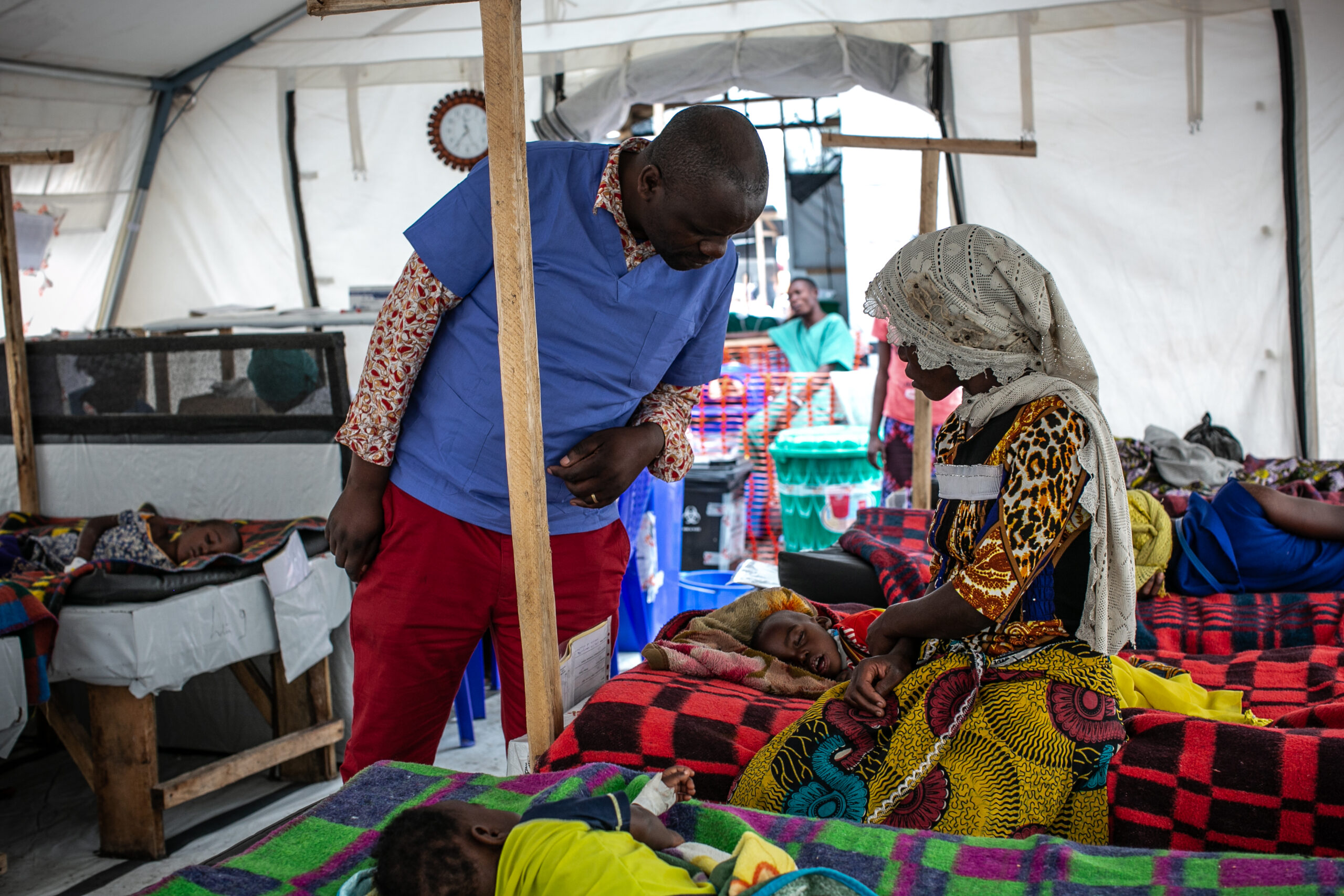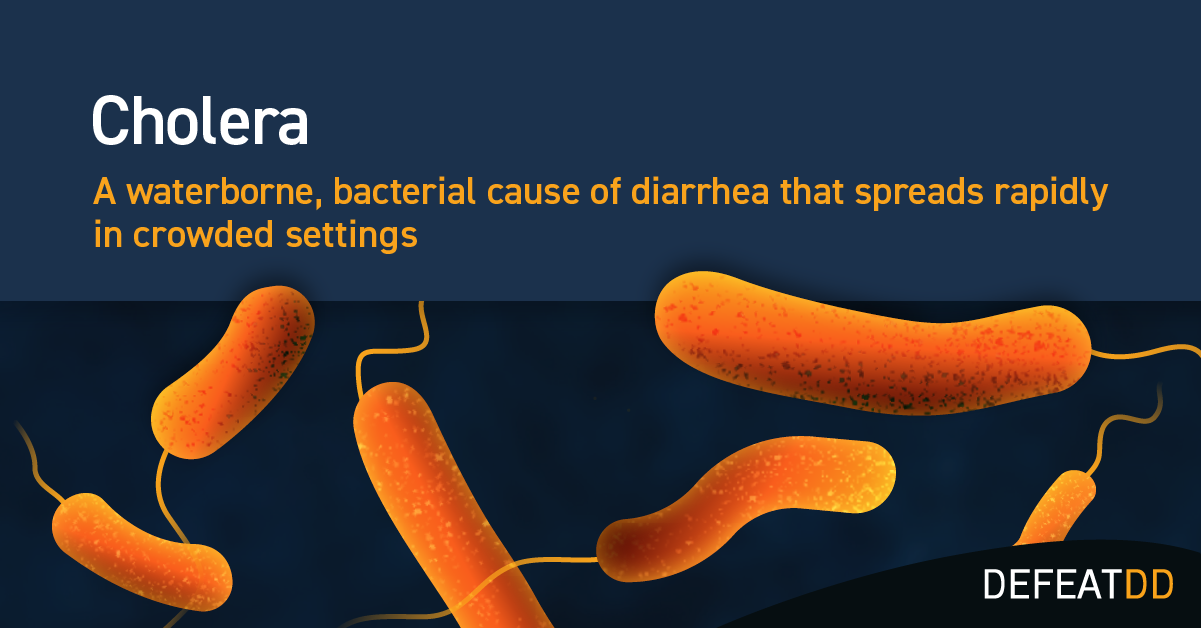
Why do we keep seeing cholera in the news?

Nurse supervisor Joseph Muhisi checks on a suspected cholera patient in Kanyaruchinya, DRC, at a displacement camp for families fleeing the volcanic eruption of the Mount Nyiragongo in 2021. The camp implemented oral cholera vaccine to stem the tide of the outbreak. Photo: PATH/Ley Uwera.
In recent months, numerous news articles have detailed global cholera outbreaks. What do we know about cholera, and why are these outbreaks so prevalent?
Cholera is a bacteria that can infect a person’s intestine, often causing diarrhea. Cholera can cause extremely severe or harmful illness. Approximately 1 in 10 people who get sick with cholera will develop severe symptoms. Treatment for those who have mild symptoms is oral rehydration therapy, but more severe cases require medical attention. The cholera bacterium is often found in water or foods that have been contaminated with feces from a person infected with cholera. Therefore, transmission or spread of disease is most likely to occur in places that have inadequate drinking water, sanitation, and hygiene (WASH). The disease can spread rapidly in areas with inadequate treatment of sewage and drinking water. Triggers for cholera outbreaks include poverty, conflict, and extreme climate events such as floods, droughts, and cyclones that reduce access to clean water. This leaves communities throughout the world extremely vulnerable to high risk of this water-borne disease.
Now that we know what cholera is, why is it in the news?
Since January 2023, thirty countries have officially reported cases of cholera, and the World Health Organization (WHO) classified the global resurgence of cholera as a grade 3 emergency, as operations to control the disease continue. There was a 25% increase in reported cholera cases in 2022 compared to 2021. In January 2024 alone, the WHO recorded 40,900 cholera cases. Regions in Eastern and Southern Africa have seen some of the worst cholera outbreaks in decades. Some of the countries most impacted by cholera this year include Zambia and Zimbabwe, with fast spreading outbreaks in several local regions.
Cholera is resurging because several factors combine to create a “perfect storm” for outbreak potential, including increased extreme weather events, limited healthcare access, reduced surveillance, conflict-driven displacement and infrastructure damage, and lack of access to clean drinking water and safe sanitation.
 Given what we know about cholera, transmission, and growing outbreaks, what can we do to defeat this diarrheal disease?
Given what we know about cholera, transmission, and growing outbreaks, what can we do to defeat this diarrheal disease?
Preparation is key. This includes investing in robust surveillance and swift implementation of oral cholera vaccine to control outbreaks as soon as the threat is identified. In addition to vaccines, an integrated approach that includes improved WASH infrastructure and health education in settings most vulnerable to cholera outbreaks is ideal. Cholera is often referred to as an indicator of poverty, so public health efforts invested in these settings can go a long way.
We will keep seeing cholera in the news unless advocates and policymakers take steps to prevent it. Resources are available to advocate for preventive efforts and increased awareness, as we strive for better news headlines in the months ahead.


